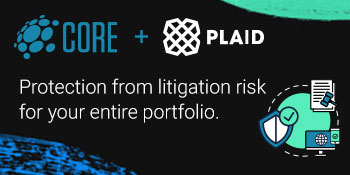Taysha Gene Therapies Announces Regenerative Medicine Advanced Therapy Designation Granted By U.S. FDA For TSHA-102 In Rett Syndrome
Author: Benzinga Newsdesk | May 02, 2024 08:10am
RMAT designation follows FDA's review of available safety and efficacy data from the first three patients dosed with the low dose of TSHA-102 across both REVEAL Phase 1/2 trials (adolescent/adult and pediatric)
RMAT designation enables increased dialogue with the FDA to support the potential expedited development and review of TSHA-102 in clinical evaluation for Rett syndrome
DALLAS, May 02, 2024 (GLOBE NEWSWIRE) -- Taysha Gene Therapies, Inc. (NASDAQ:TSHA), a clinical-stage gene therapy company focused on developing and commercializing AAV-based gene therapies for the treatment of severe monogenic diseases of the central nervous system (CNS), today announced the United States Food and Drug Administration (FDA) has granted Regenerative Medicine Advanced Therapy (RMAT) designation to TSHA-102, a self-complementary intrathecally delivered AAV9 gene transfer therapy in clinical evaluation for Rett syndrome. RMAT designation was granted following the FDA's review of clinical data supporting the potential of TSHA-102 to address the unmet medical need for patients with Rett syndrome.
RMAT designation was designed to expedite the development and review of regenerative medicine therapies. A regenerative medicine therapy is eligible for RMAT designation if it is intended to treat, modify, reverse or cure a serious condition, and preliminary clinical evidence indicates the therapy has the potential to address unmet medical needs for such condition. Sponsor companies receiving RMAT designation can benefit from increased interactions with the FDA involving senior managers, with the goal of expediting drug development. RMAT designation follows the FDA's review of available safety and efficacy data from the first three patients with Rett syndrome dosed with the low dose of TSHA-102 (5.7x1014 total vg) across the REVEAL Phase 1/2 adolescent and adult trial and the REVEAL Phase 1/2 pediatric trial.
"We believe receiving RMAT designation reinforces the high unmet medical need in Rett syndrome and the therapeutic potential of TSHA-102 to change the treatment paradigm," said Sukumar Nagendran, M.D., President and Head of R&D of Taysha. "Importantly, RMAT designation was granted following the FDA's review of safety and efficacy data from the first three patients dosed with the low dose of TSHA-102 across both of our REVEAL Phase 1/2 trials. We believe this important recognition from the FDA further supports the potential of our gene therapy candidate to bring meaningful change to patients and families living with Rett syndrome."
Rumana Haque-Ahmed, Chief Regulatory Officer of Taysha, added, "We remain focused on advancing the development TSHA-102 to bring a potentially disease-modifying therapy being evaluated to address the genetic root cause of Rett syndrome to all patients and families living with this devastating disease. Receiving RMAT designation helps facilitate this goal by enabling increased dialogue with the FDA to expedite our development plan for TSHA-102. We look forward to working closely with the FDA and other regulatory agencies as we continue to advance our TSHA-102 program."
TSHA-102 is being evaluated in the REVEAL Phase 1/2 adolescent and adult trial taking place in Canada and the U.S., and in the REVEAL Phase 1/2 pediatric trial taking place in the U.S. and cleared in the U.K.
About TSHA-102
TSHA-102 is a self-complementary intrathecally delivered AAV9 investigational gene transfer therapy in clinical evaluation for Rett syndrome. Designed as a one-time treatment, TSHA-102 aims to address the genetic root cause of the disease by delivering a functional form of MECP2 to cells in the CNS. TSHA-102 utilizes a novel miRNA-Responsive Auto-Regulatory Element (miRARE) technology designed to mediate levels of MECP2 in the CNS on a cell-by-cell basis without risk of overexpression. TSHA-102 has received Regenerative Medicine Advanced Therapy, Fast Track and Orphan Drug and Rare Pediatric Disease designations from the FDA, Orphan Drug designation from the European Commission and Innovative Licensing and Access Pathway designation from the Medicines and Healthcare products Regulatory Agency.
Posted In: TSHA




